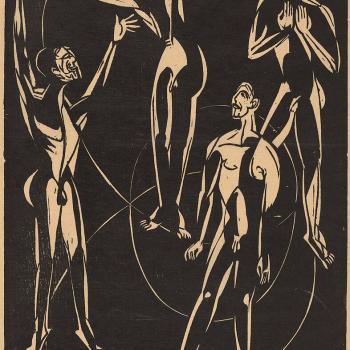What I found was horrifying. She was Catholic, sure, but also over 30, married, and followed me on Twitter with her real account. I found a wedding photo (she’s been married since I was a freshman in high school!), found her husband’s social media accounts, and even found that she had come back to Twitter (on her real account) ferociously. She’d gone from inactive to uproarious in a matter of days. And that account showed no remorse, no sign that she cared what she had done—only an attempt to start over, to regain her position in the oh-so-wholesome world of Catholic Twitter.
At the same time, she deactivated her old Twitter, and the community responded with lamentation, concern, and prayer. It was at that point that I knew I could no longer standby; my personal pain was now that of an entire community, even if diminished. I had been catfished, yes, but not just me—thousands of people who followed her, hundreds who spoke with her almost daily, and dozens who would come to her for advice.
I won’t give her real name. I have no desire to ruin her life. I’ve given her ample opportunity to let the community know about this; she’s confessed the whole thing (though relatively limply and coldly) to me. But she has not come clean, to the whole community. And so now that is my responsibility.
I received the brunt of this, that’s for sure. I look like the biggest fool—and I accept that. But thousands of people out there looked up to this woman; hundreds interacted with her day-in-and-day-out. Some of them would text her, would talk to her on the phone, would pray for her, would even hit on her aggressively and, seemingly, without shame. Many of her followers are just teenage girls looking for a sense of belonging, and though the damage done to them is diffuse, it’s no less shocking.
I’ve decided to be honest about this for them, for a small, tight-knit community that has never expected and should never expect this sort of deception; I’ve decided to tell my story because clearly the perpetrator—“El,” “This Catholic Girl”—needs our prayers, evidently needs help but from us and, likely, from professionals. I forgive her and I pray you can too.
Ultimately, I imagine she feels remorse and needs our support. That is my hope and my belief.
We cannot know how much of what she has told is true and how much is false, but we can know that she is a person in need of help, we can know that this can happen, even in the world of Catholic Twitter.
Image usage laws are complex, so I’ll be posting the photographic evidence to my Twitter under the hashtag #ThisCatholicGirl. Upon seeing them, I doubt you will be as shocked as I first was when I learned that a woman to whom I had poured out my life and feelings was a 30+, married non-student. Still, I think they will shock; they cannot help but testify to sin—both its banality and inexplicability.













